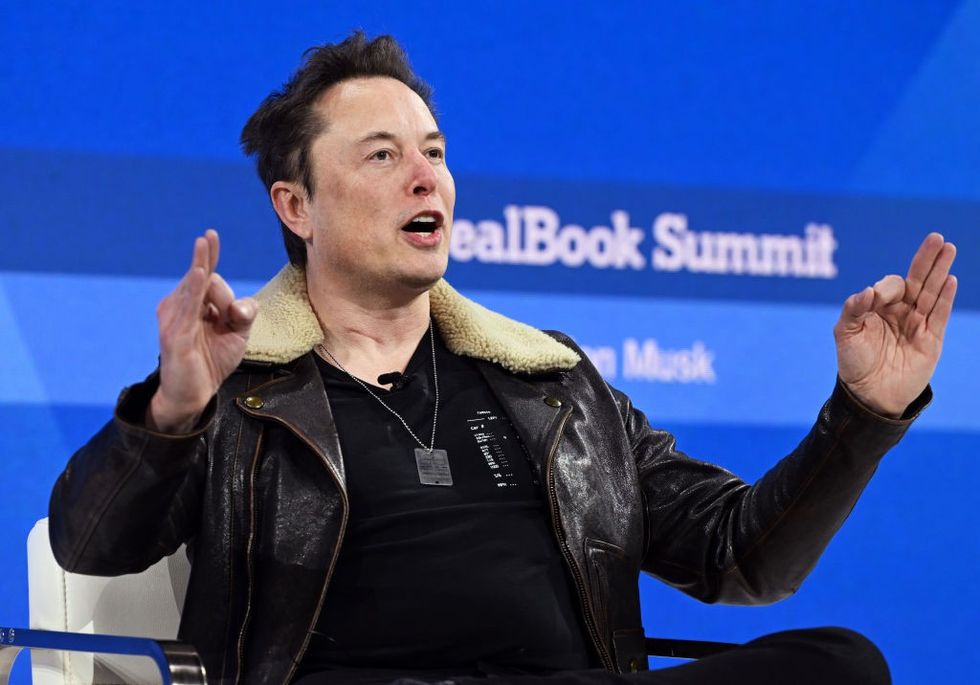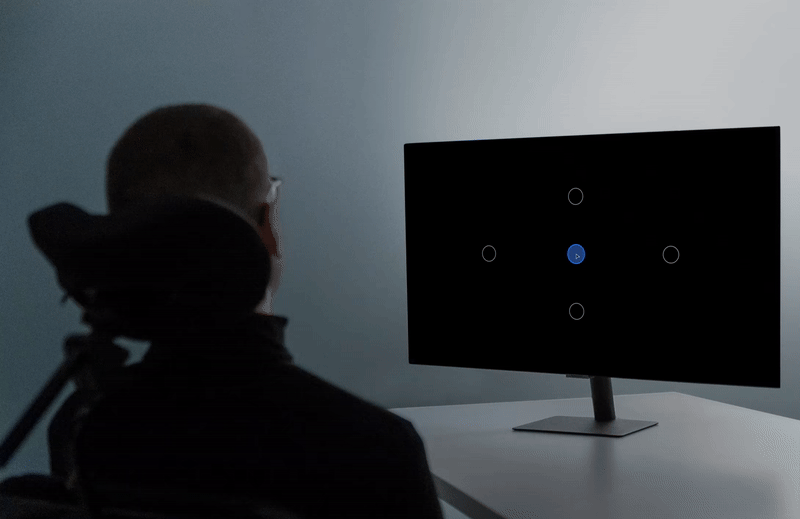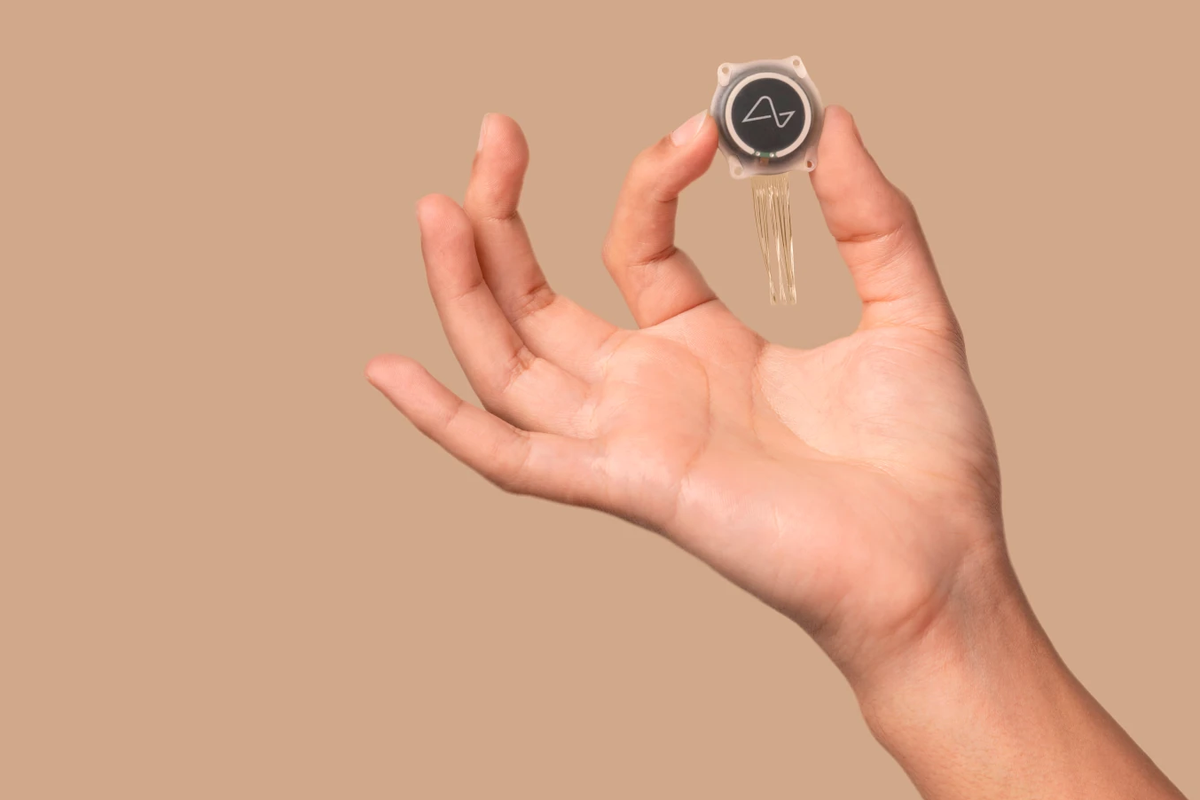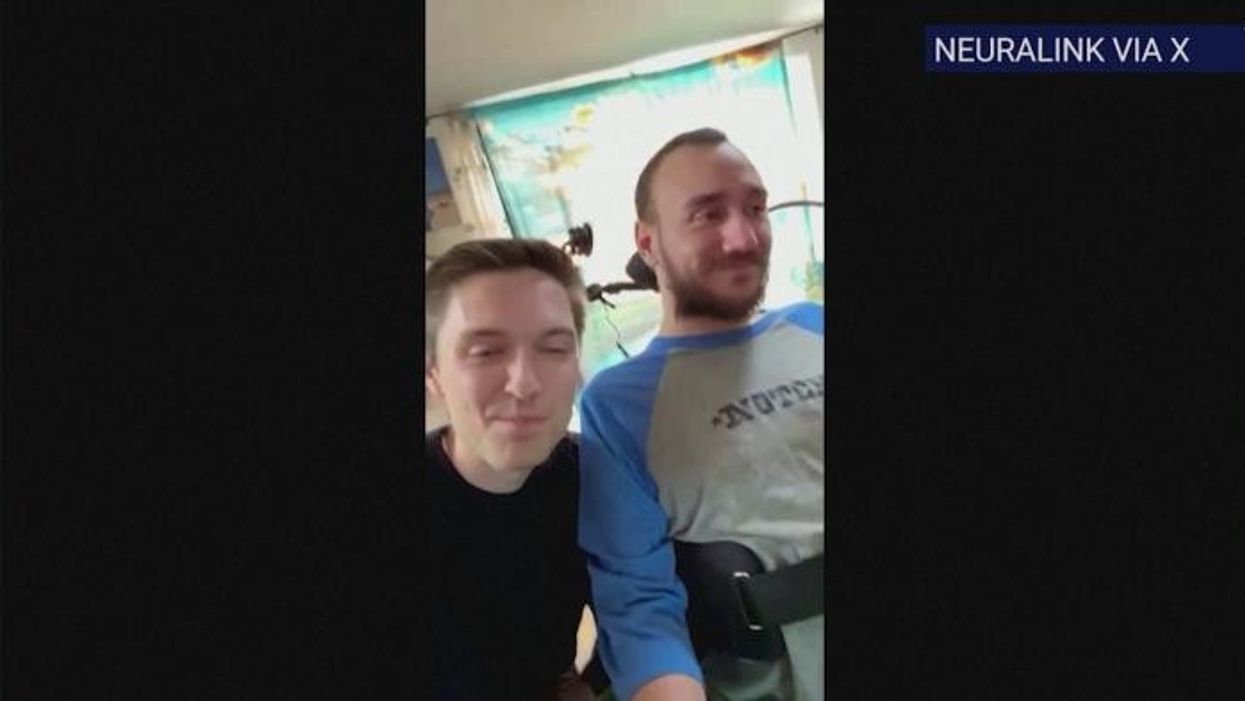Neuralink patient speaking for the first time.mp4
Noland Arbaugh spoke about his experiences with cutting-edge brain-chip for the first time
- Neuralink recruited patients for its first human trial in September 2023
- Operation was successfully performed by robots in January
- Chip inserted into brain has 1,024 electrodes to monitor activity
- Neuralink hosted a livestream with Noland Arbaugh on March 20
- The 29-year-old patient confirmed he could play chess with the chip
- But cautioned Neuralink had "run into some issues"
Don't Miss
Most Read
Trending on GB News
The first human patient to receive a cutting-edge computer chip implanted into his brain by Elon Musk's startup Neuralink has spoken about his experiences. SpaceX co-founder Elon Musk confirmed the surgery was successful and revealed the patient was able to control a computer mouse with his thoughts in late February.
However, this marks the first time that we've heard from the patient himself.
Noland Arbaugh, the 29-year-old patient who was paralyzed below the shoulder after a diving accident, appeared in a live stream hosted by Neuralink on Wednesday March 20. The brain-chip is packed with 1,024 electrodes that monitors brain activity in the area that controls the intention to move.

SpaceX and Tesla CEO Elon Musk has poured millions into the medical start-up Neuralink
GETTY IMAGES
This activity is beamed to a computer, enabling Mr. Arbaugh to control a computer cursor or keyboard using only his thoughts. A few months after the initial surgery, which was performed by robots, Mr. Arbaugh revealed that he's already mastered online chess using the electrodes fitted inside his brain.
"The surgery was super easy," Mr. Arbaugh told viewers in the live video, which was streamed on Elon Musk's social media platform X, formerly Twitter. "I literally was released from the hospital a day later. I have no cognitive impairments."
Elaborating on his experience with the brain-chip, Mr. Arbaugh admitted that it's "not perfect" and medical start-up Neuralink has "run into some issues."
"I don't want people to think that this is the end of the journey, there's still a lot of work to be done, but it has already changed my life," the 29-year-old volunteer added. However, he didn't go into detail about the problems he'd faced with the cutting-edge implant, which had only been tested in mice before his surgery.
Neuralink, which was started back in 2016, received approval for human trial recruitment in September 2023. At the time, the Californian company said it was looking for volunteers aged 22 or older with quadriplegia caused by a cervical spinal cord injury or amyotrophic lateral sclerosis.
The livestream on X this week marks the first time we've learned the identity of the volunteer.

Neuralink has shared the following clip on its website, offering a glimpse of what it hopes to achieve with its brain-chip experiment
NEURALINK PRESS OFFICE
Speaking about other possibilities of the Neuralink chip, Mr. Arbaugh revealed that he's been able to return to a favourite computer game, Civilization VI. "I had basically given up playing that game," he said, before adding "you all (Neuralink) gave me the ability to do that again and played for 8 hours straight."
However, not everyone was blown away by the disclosures from the Neuralink livestream. Kip Ludwig, former program director for neural engineering at the U.S. National Institutes of Health, blasted the advancements detailed by Neuralink, stating that nothing shown in the livestream was "a breakthrough."
"It is still in the very early days post-implantation, and there is a lot of learning on both the Neuralink side and the subject's side to maximize the amount of information for control that can be achieved," he added.
Even so, Ludwig said it was a positive development for the patient that they have been able to interface with a computer in a way they were not able to before the implant. "It's certainly a good starting point," he said.
In previous public statements, the US company revealed the implant contains 1,024 electrodes that record neurological activity and wirelessly beam the data to a connected app. This uses an algorithm to translate the brainwaves into computer controls.
The initial goal was to enable someone to control a computer mouse pointer on-screen or type on a keyboard using their thoughts — something the start-up now seems previously close to achieving.

A glossy promotional image of the types of brain-chip being developed by Neuralink
NEURALINK PRESS OFFICE
The first human trial, known as PRIME (Precise Robotically Implanted Brain-Computer Interface), will run for 18 months in total. Researchers will allow the patient back home, with regular check-ins at a clinic. A five-year follow-up comprising 20 clinic visits will succeed the initial trial period.
Musk says the technology tested by Neuralink has huge implications for society. According to the the 52-year-old multi-billionaire, the surgical insertion of these chips could be used to treat conditions like obesity, autism, depression, and schizophrenia.
LATEST DEVELOPMENTS
- Microsoft racing to fix ‘critical’ security flaw used by hackers
- Windows 10 users facing new charges from Microsoft get lifeline from Google
- This website wipes all trace of your personal data from the internet
- End of the satellite dish? Sky Q slowly phased out as Sky prioritises streaming
It could also allow people with physical disabilities to use computers with their thoughts.
Neuralink, which was valued at $5 billion last year, has faced repeated calls for scrutiny regarding its safety protocols. Reuters reported last month that the firm was fined for violating United States Department of Transportation rules regarding the movement of hazardous materials.









